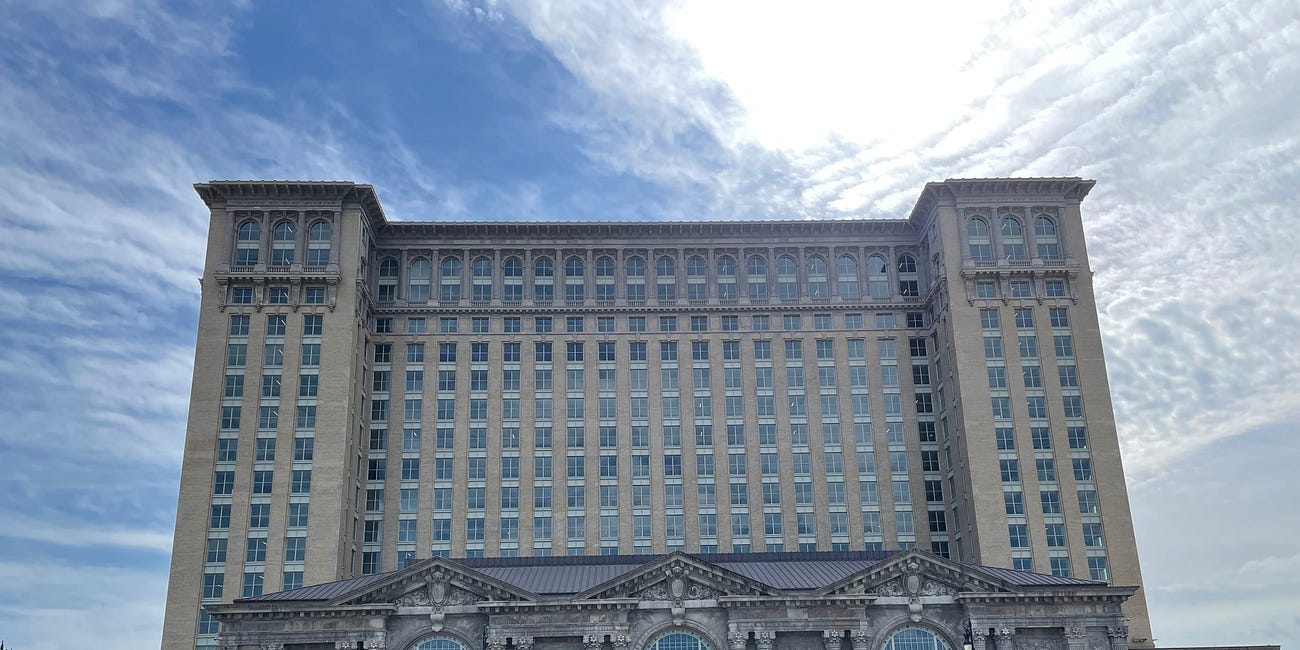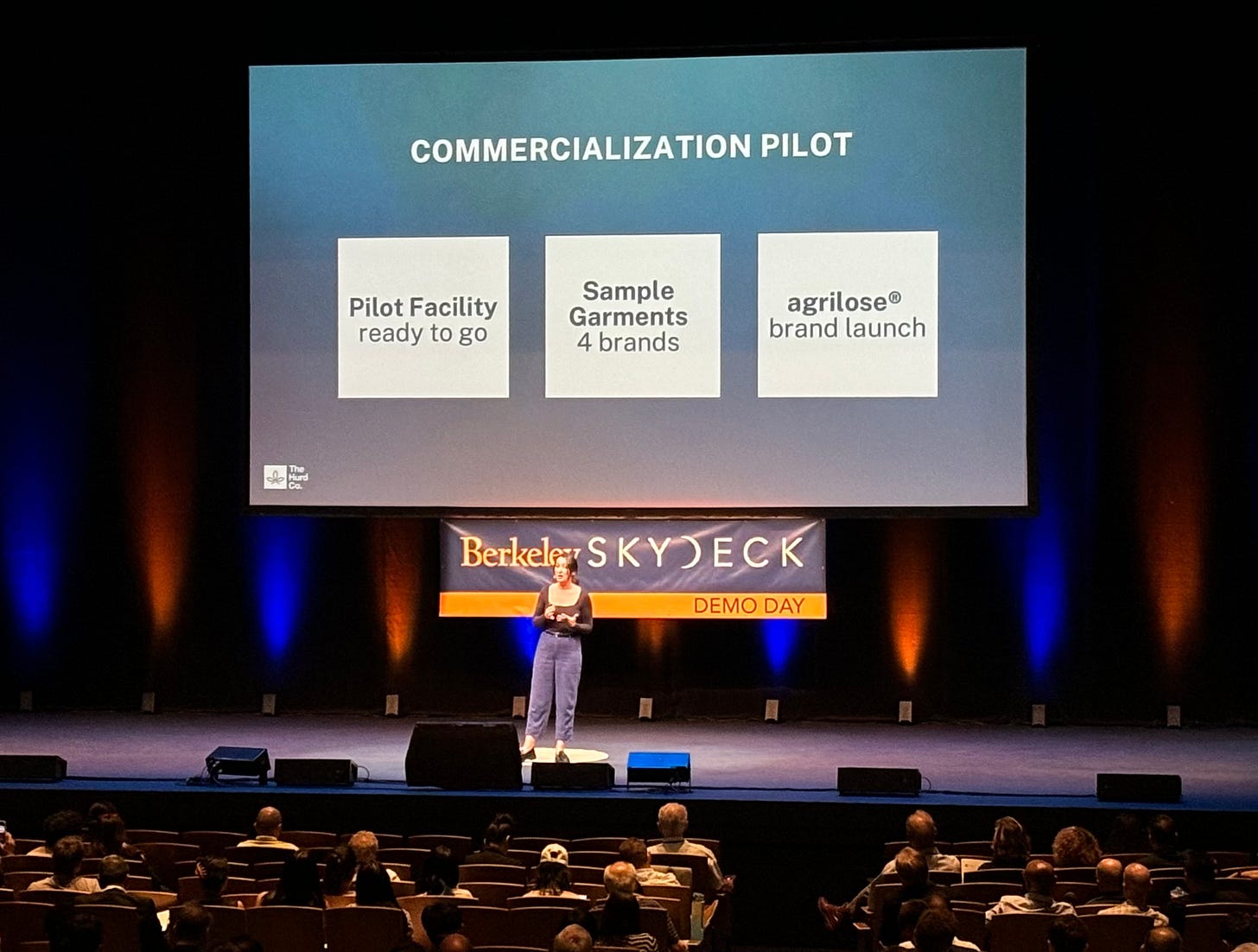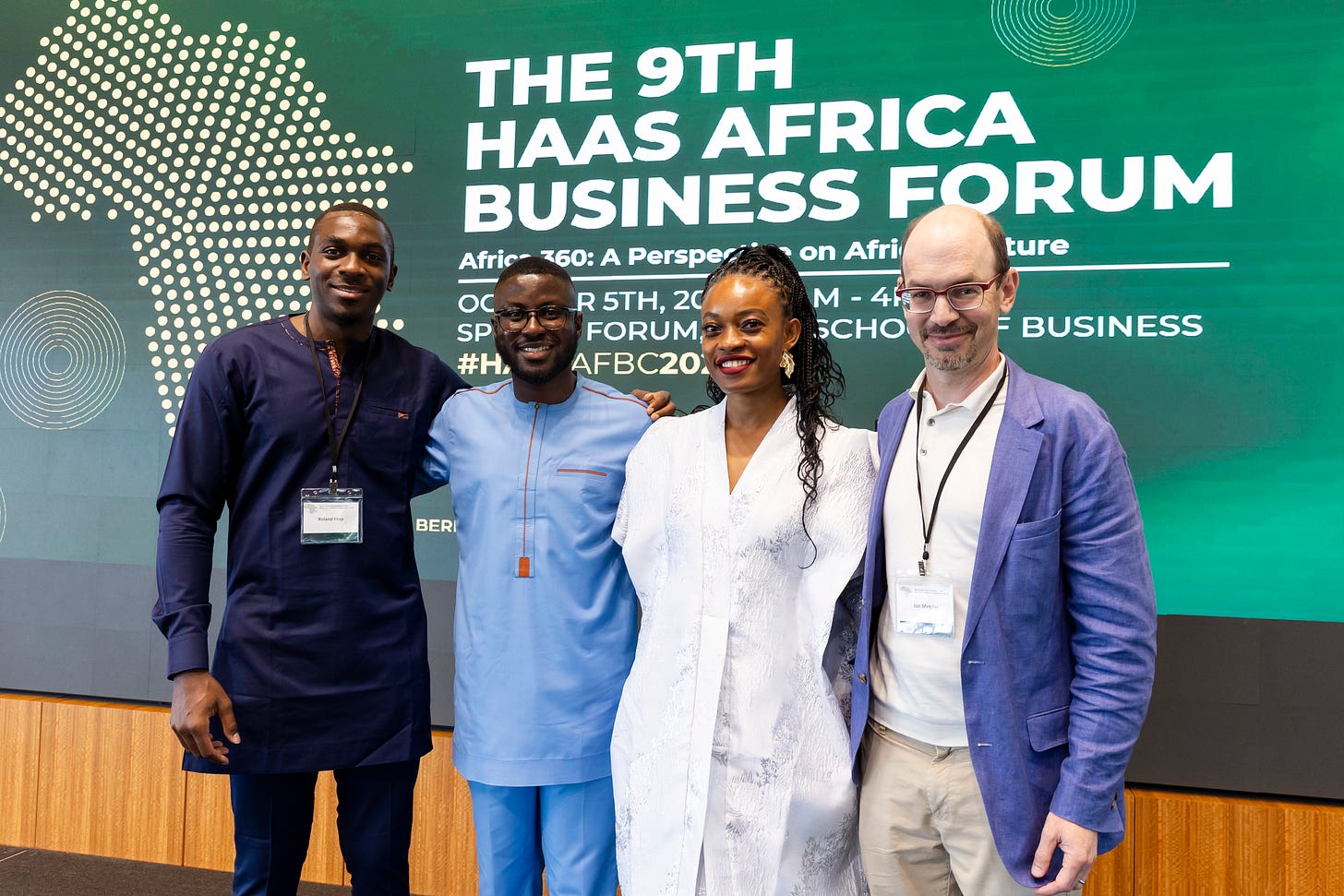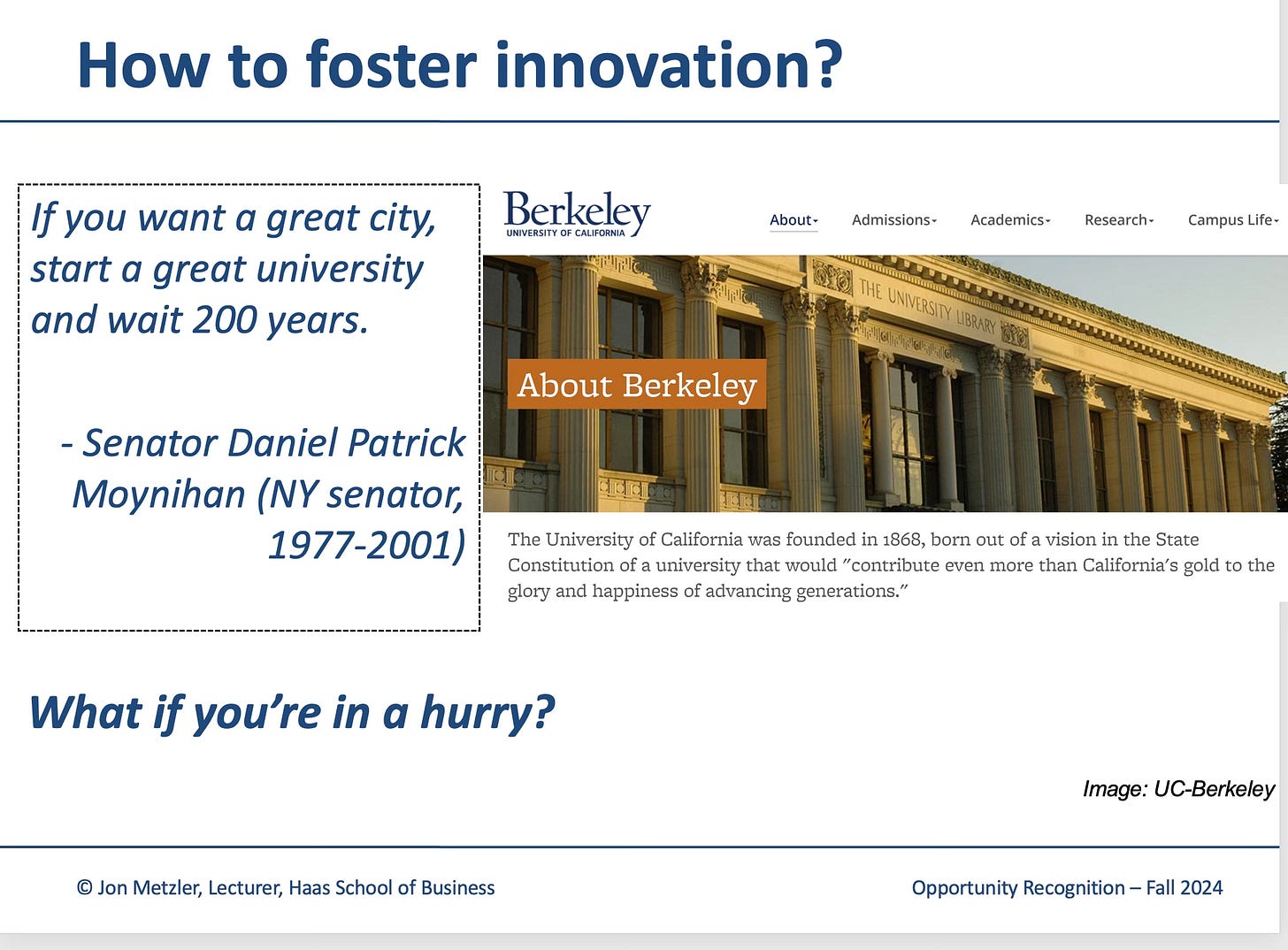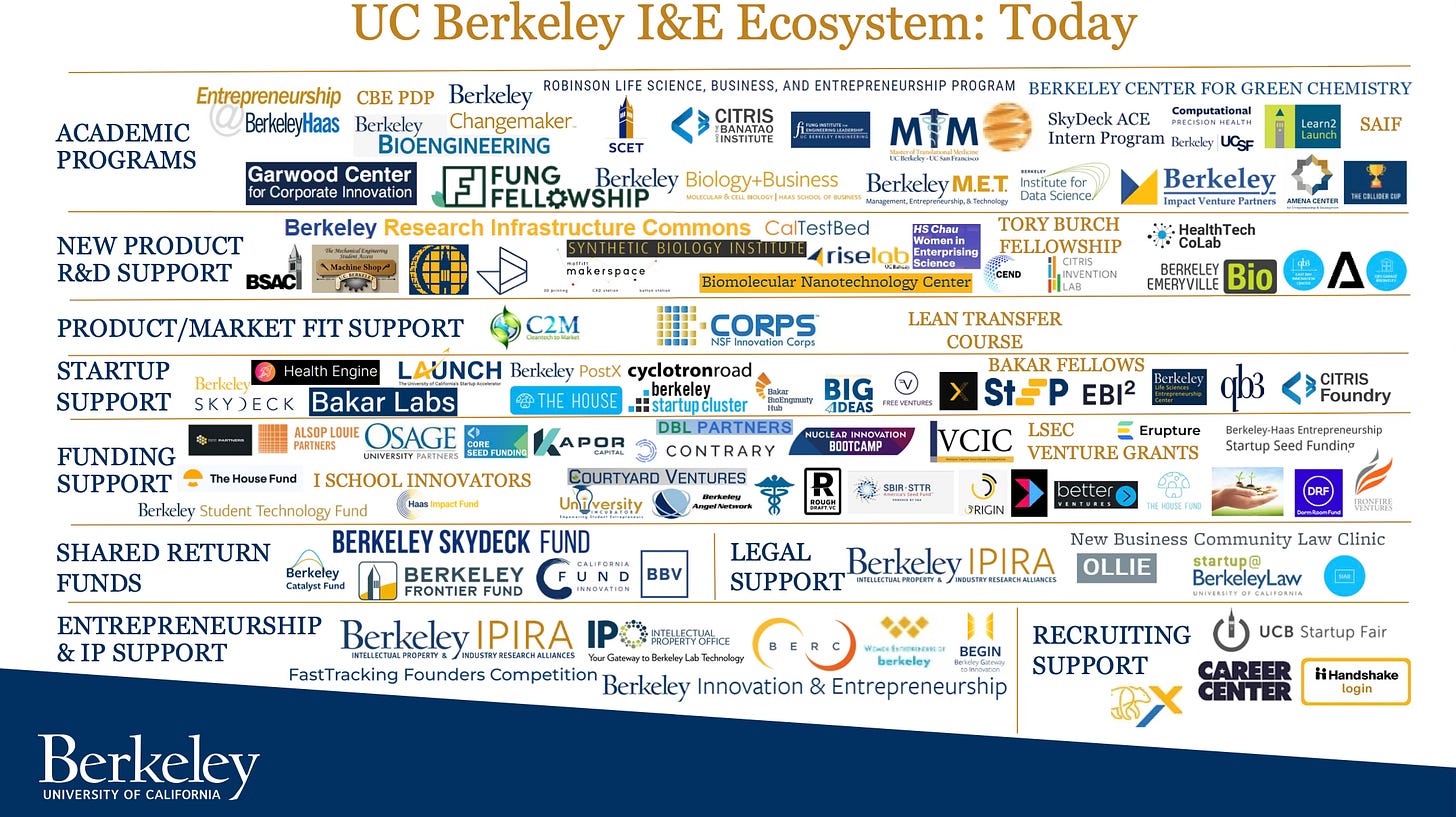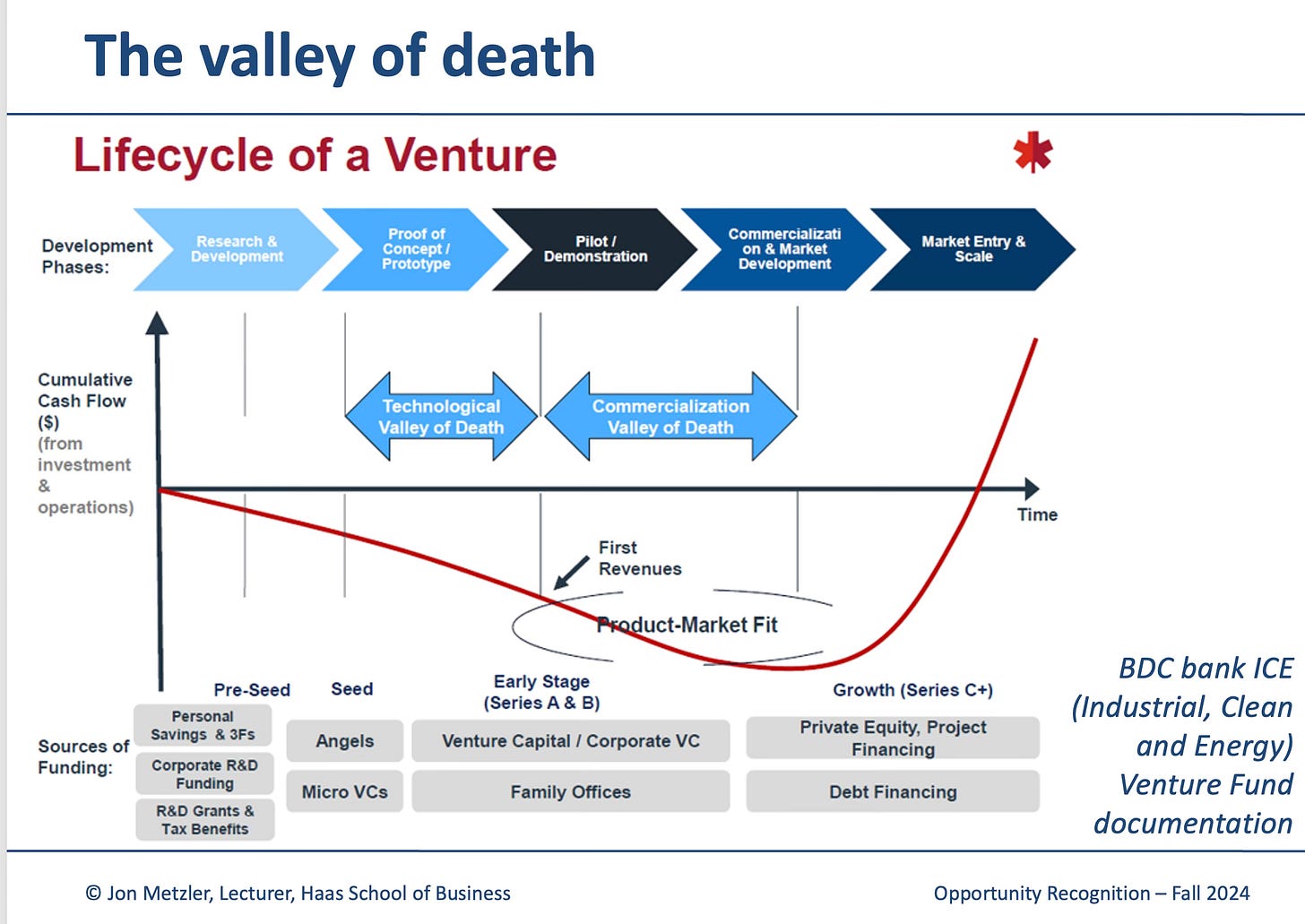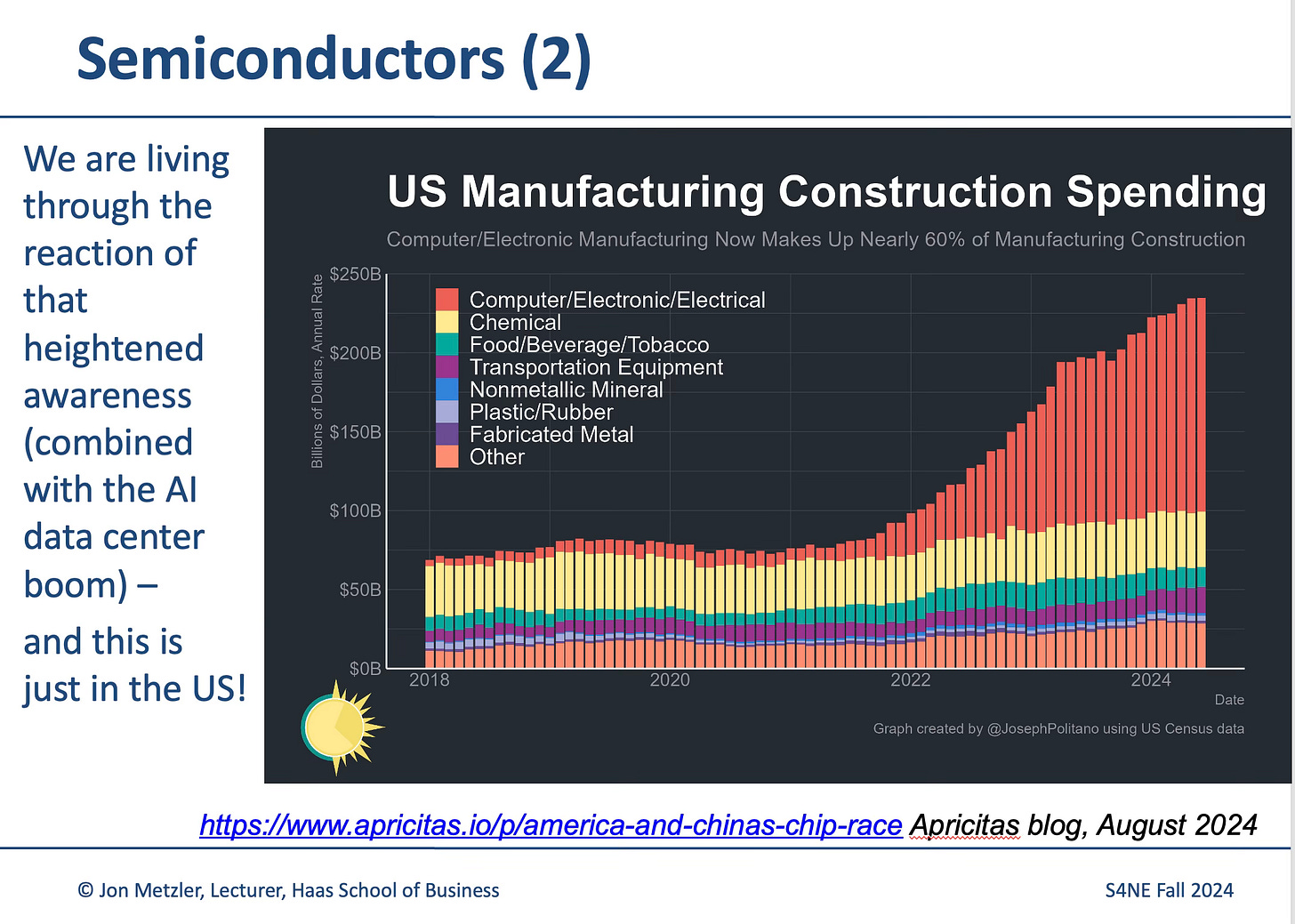The vortex campus
SkyDeck Demo Day; Haas Africa Business Forum; Chancellor Lyons investiture; Editpep and traversing the valley of death
Friends - it was very nice to hear from some of you after my last post, on Detroit Homecoming. Haven’t read it? Not to worry, here it is…
Since then, the UC-Berkeley campus has been a flurry of activity. On October 1, Berkeley SkyDeck held Demo Day for the Batch 18 cohort of startups. I bolted down the hill (in 96 degree heat! 😅 ) from Haas after Strategy for the Networked Economy to catch the last several presentations. I particularly enjoyed those by TLR Therapeutics, and agrilose fiber provider Hurd.
Hurd founder Taylor Heisley-Cook
On October 5, the same day as Cal-Miami and ESPN College GameDay coming to campus, a group of student leaders hosted the 9th Haas Africa Business Forum - Africa 360: A Perspective on Africa’s Future - at Spieker Forum at the Haas School of Business. It was great to come out, learn, and also reconnect with past students who were back on campus for the event.
from left: Roland Ekop, MBA 2020; Kwamina Arthur and Ann Ukadike, co-presidents, Haas Africa Business Club and MBA 2025
I particularly enjoyed the fireside conversation with Kendall Ananyi, CEO of Tizeti, which provides VoIP communications services and Wi-Fi connectivity and has steadily built out an array of infrastructure and services.
Back in the early 2010s I had assessed US network operator appetite for power-as-a-service offerings akin to those showing up in the commercial power market via PPAs. The cost of solar and storage has come down dramatically since then and it was great to see a company taking advantage that of that downtrend in deploying its connectivity infrastructure.
What I most enjoyed, though, was seeing a group of student leaders harness their power to convene, and bring industry and investment leaders to campus. I’m looking forward to seeing Ann, Kwamina, Ruth and Taiwo up on stage as returning alumni!
It’s now official - while Chancellor Rich Lyons has been in the role for over three months, Friday October 18th was his investiture as the 12th chancellor of UC-Berkeley. (Before Clark Kerr, UC-Berkeley had presidents.) Appropriately enough, given Rich’s flair for guitar, a string quartet played both the Beatles and the Stones. (Norwegian Wood and Sympathy for the Devil, for those keeping score.)
Chancellor Lyons is perhaps best known for, in partnership with Interim Dean Jenny Chatman, codifying Haas’ defining leadership principles. They are:
Question the status quo
Confidence without attitude
Students always
Beyond yourself
They are carved in the wall at the Haas School of Business. And presage Rich’s emphasis as chancellor on Berkeley’s Principles of Community.
Following the suggestion of Caroline Winnett, executive director of Berkeley SkyDeck, I would encourage readers to view Rich’s remarks. They start around minute 37 in the embed below.
I will pull one quote, which encapsulates the blend of pride and humility and ambition Rich brings to the role.
I see this is not as a personal ceremony, but as a communal one,
an inauguration of another era of excellence for our university, for I am absolutely certain that together,
we can, and will, write a new chapter in the remarkable story of Berkeley's never-ending quest
to open and explore new horizons on behalf of the greater good.
Onward and upward! Let’s do this!
The campus activity made a fitting backdrop to the topic in Week 8 of Opportunity Recognition: universities, and their role in innovation and entrepreneurship ecosystems. We started with the famous Daniel Patrick Moynihan quote:
We discussed the role campuses play in innovation ecosystems, and how UC-Berkeley’s own innovation and entrepreneurship ecosystem has developed in the past 25 years. Curious? You can see the evolution here: UC-Berkeley Innovation & Entrepreneurship Ecosystem, 2000-2023.
UCB Innovation & Entrepreneurship ecosystem, as of December 2023
This breadth and depth of options does present some navigability questions, as some of my students noted. For a student looking to get startup mentoring experience, or meet fellow entrepreneurs, there are a LOT of options. (This is what’s known as a good problem to have, on balance.)
I’ll often direct off-campus stakeholders to SkyDeck as a way to first engage - it’s like a front porch, both physically and symbolically, founded as it was in 2012 by the deans of engineering (then Shankar Sastry) and business (one Rich Lyons) and the vice-chancellor for research.
As a class, we discussed universities’ role in fostering innovation and also as agents of transitions and turnarounds, a playbook some call Eds and Meds. We also discussed the distinction between Vortex and Waypoint universities (link to Mike Cohen’s paper of that name; thanks, Mike).
The terms are relatively self-explanatory - students, researchers and visiting scholars pass through a Waypoint university and head off somewhere else, whereas Vortex universities absorb a lot of those who come to campus into opportunities in the adjoining area. Mike’s paper and other publications cite MIT and its surroundings in Cambridge, MA, as an example of the spatially compact, non-car dependent Vortex campus.
Naturally, students raised the example of Stanford and Sand Hill Road. The boundaries are very much porous.
As a class, we discussed: what would keep us local? Factors included employment opportunity; transit and related infrastructure; cost of living; compensation levels; housing; talent density in specific sectors (e.g. life sciences); linkages between campus and local employers; linkages with alumni; access to talent; access to customers; access to capital; and also a pleasant environment, i.e., culture, amenities, weather!
With that framing, we then hosted guest speaker Ross Wilson, Assistant Adjunct Professor of Molecular and Cell Biology, UC-Berkeley, and co-founder of Editpep. In addition, Ross is:
Director, Therapeutic Delivery, Innovative Genomics Institute
Principal Investigator, Wilson Lab
We discussed the Editpep case, newly authored by none other than our new chancellor, Rich Lyons, and his successor in the role of Chief Innovation and Entrepreneurship Officer, Darren Cooke. Ross graciously shared his insights as university faculty working on a startup spun out of the lab.
Ross, and Editpep, were part of the inaugural cohort of the LSEC (Life Sciences Entrepreneurship Center) Venture Grant program, along with cohort-mates AsparaGlue and MZR. The LSEC venture program was created in part to help integrate some of the different programs, from Berkeley SkyDeck to NSF I-Corps to Speed Teaming matchmaking, available to entrepreneurial faculty at UC-Berkeley into one flow, and help raise the probability that entrepreneurs can get research out of the lab and traverse the valley of death, depicted below.
In particular, Ross noted that entrepreneurial executives capable of throwing themselves into a CRISPR startup are hard to come by, and yet through LSEC resources, he was able to meet co-passengers for the Editpep journey.
Thanks again to Ross for sharing his time and insights. Looking forward to further progress from him and Editpep! 🚀
Coming up:
I’ve alluded to research on Open RAN a couple of times in the past year-plus. Happily, that is coming down the homestretch thanks to the good folks at the UC-Berkeley Center for Long-Term Cybersecurity. Thus, I will be excerpting portions of that paper in newsletters to come. In related news, CLTC is looking for new cybersecurity research fellows!
We also hosted
in Strategy for the Networked Economy (undergrad edition) this week, to discuss semiconductor economics; next week, in a new class, we will cover part 2, i.e., what has happened in the two years since the Intel Corporation: Outsourcing Dilemma (Ivey; 2022) was written. It’s been a momentous two years, from the CHIPS Act, to IRA, to ChatGPT and the AI boom. I shared the diagram below, from , to describe the construction boom that has ensued.
Onward and upward,
Jon


